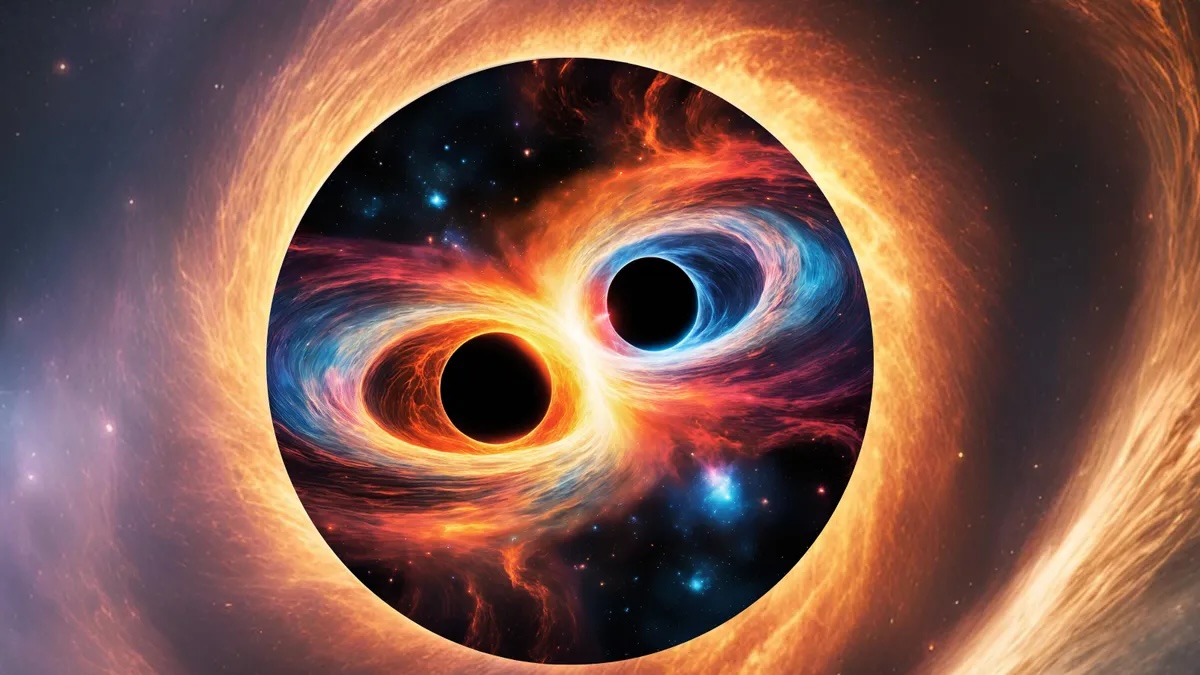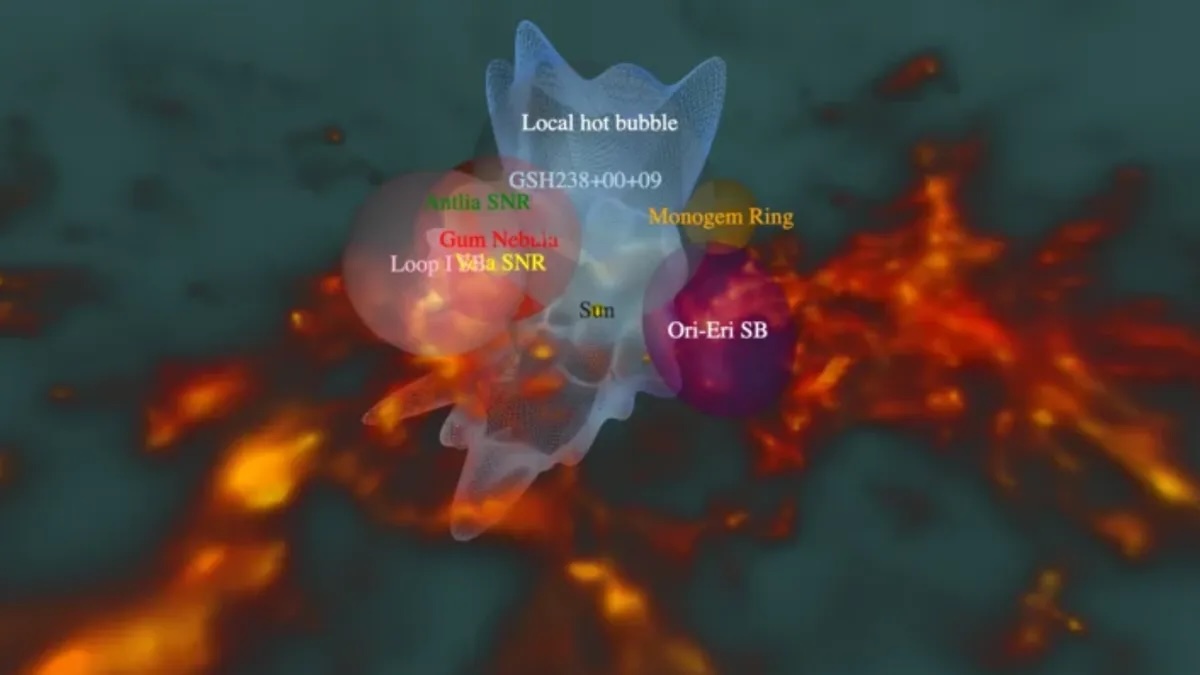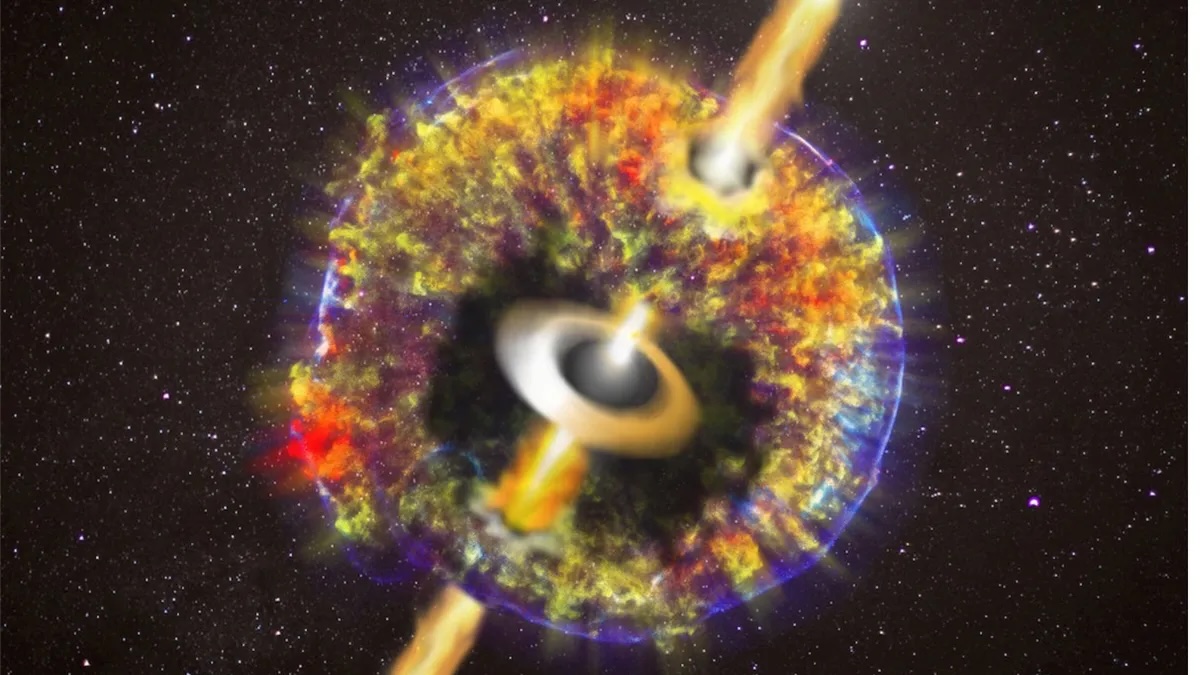
Robert Lea
Robert Lea is a science journalist in the U.K. who specializes in science, space, physics, astronomy, astrophysics, cosmology, quantum mechanics and technology. Rob's articles have been published in Physics World, New Scientist, Astronomy Magazine, All About Space and ZME Science. He also writes about science communication for Elsevier and the European Journal of Physics. Rob holds a bachelor of science degree in physics and astronomy from the U.K.’s Open University
Latest articles by Robert Lea

Record-breaking 'dead' galaxy discovered by JWST lived fast and died young in the early universe
By Robert Lea published
The most distant and earliest "dead" massive galaxy ever seen shows some galaxies lived fast and died young shortly after the Big Bang.
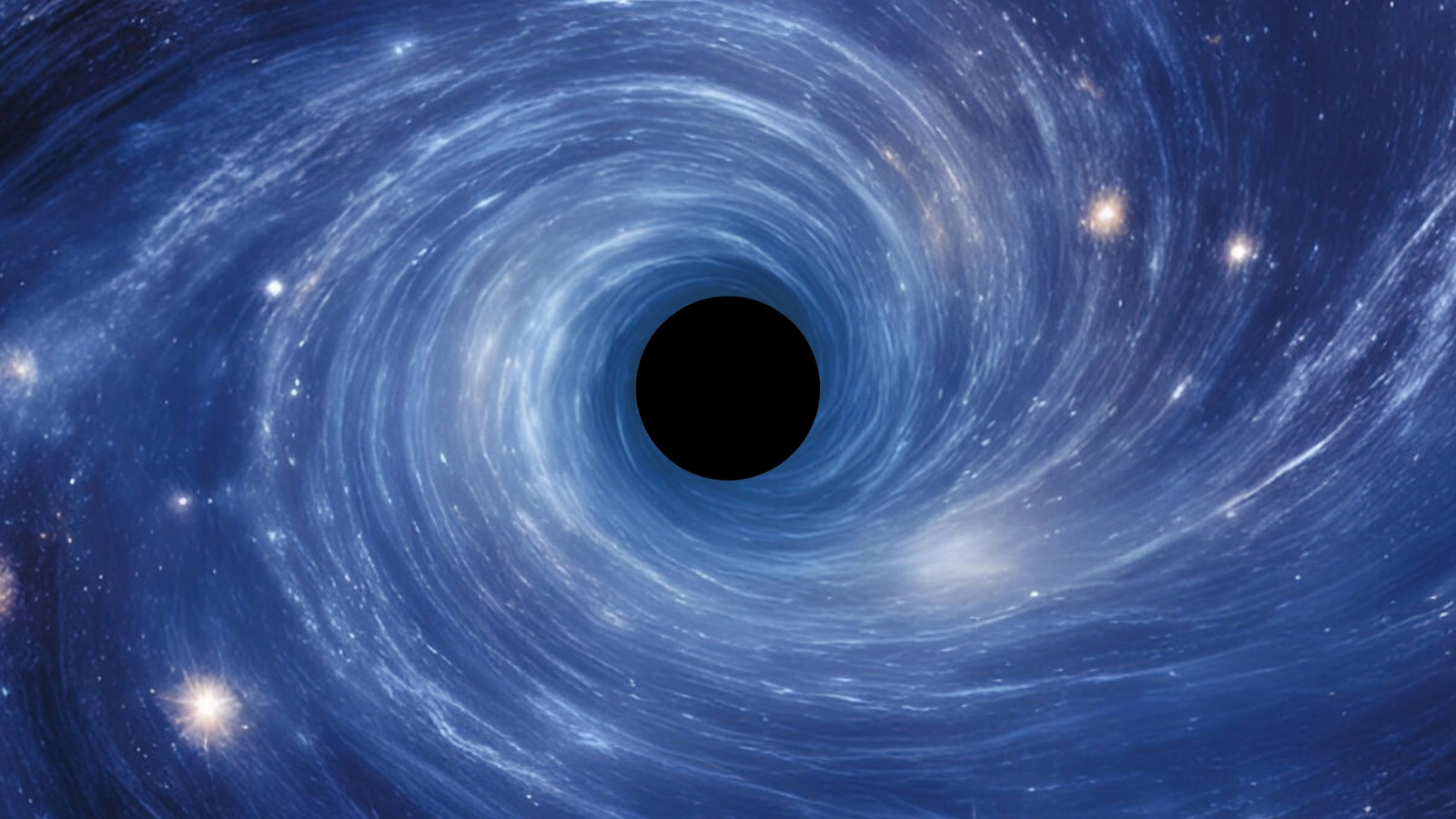
Black holes may obey the laws of physics after all, new theory suggests
By Robert Lea published
"The singularity is the most mysterious and problematic part of a black hole. It's where our concepts of space and time literally no longer make sense."
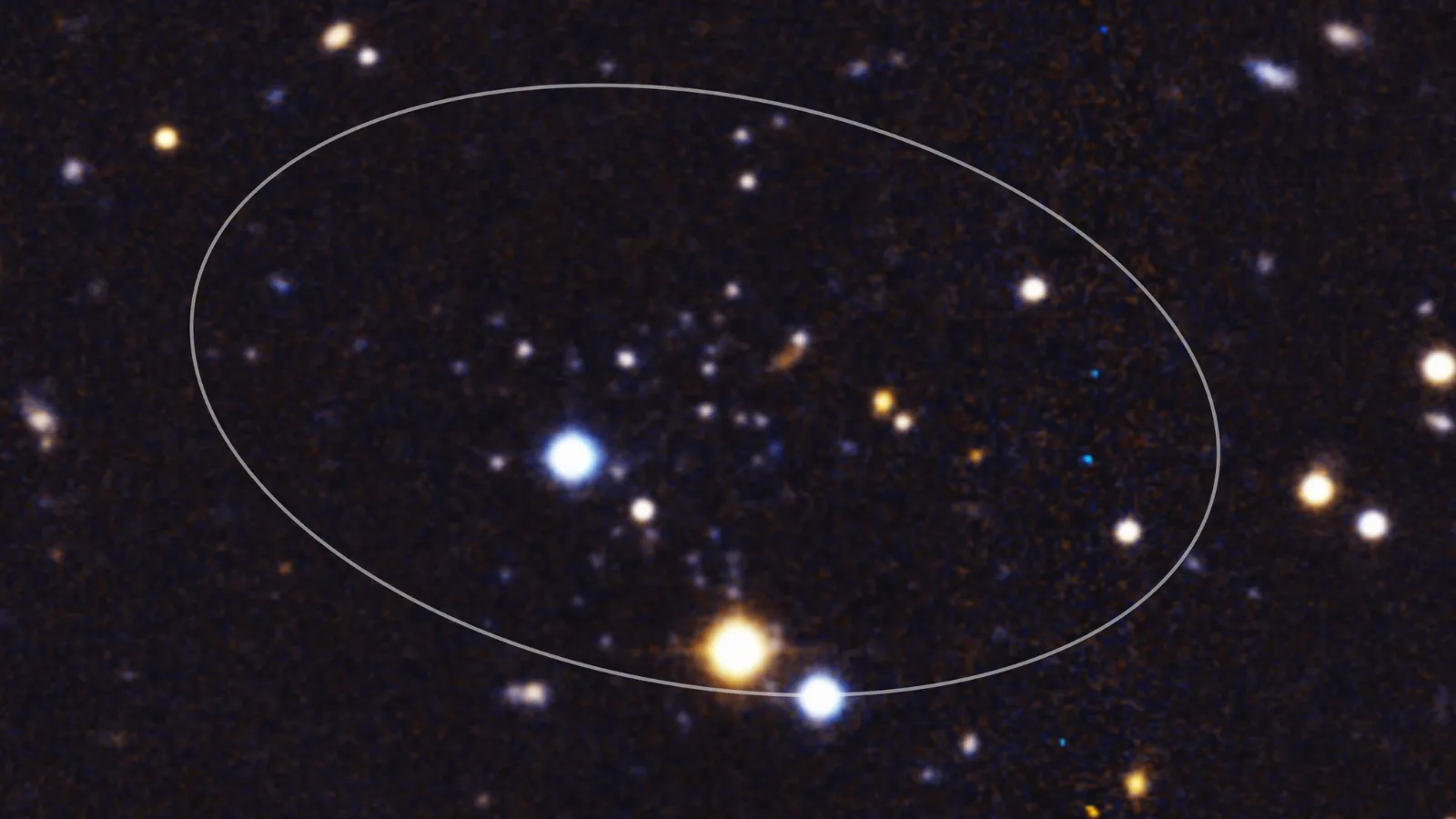
Scientists discover smallest galaxy ever seen: 'It's like having a perfectly functional human being that's the size of a grain of rice'
By Robert Lea published
Astronomers have discovered the smallest dwarf galaxy ever seen. It is a mystery how the satellite galaxy of Andromeda survived the blistering conditions of the early universe.
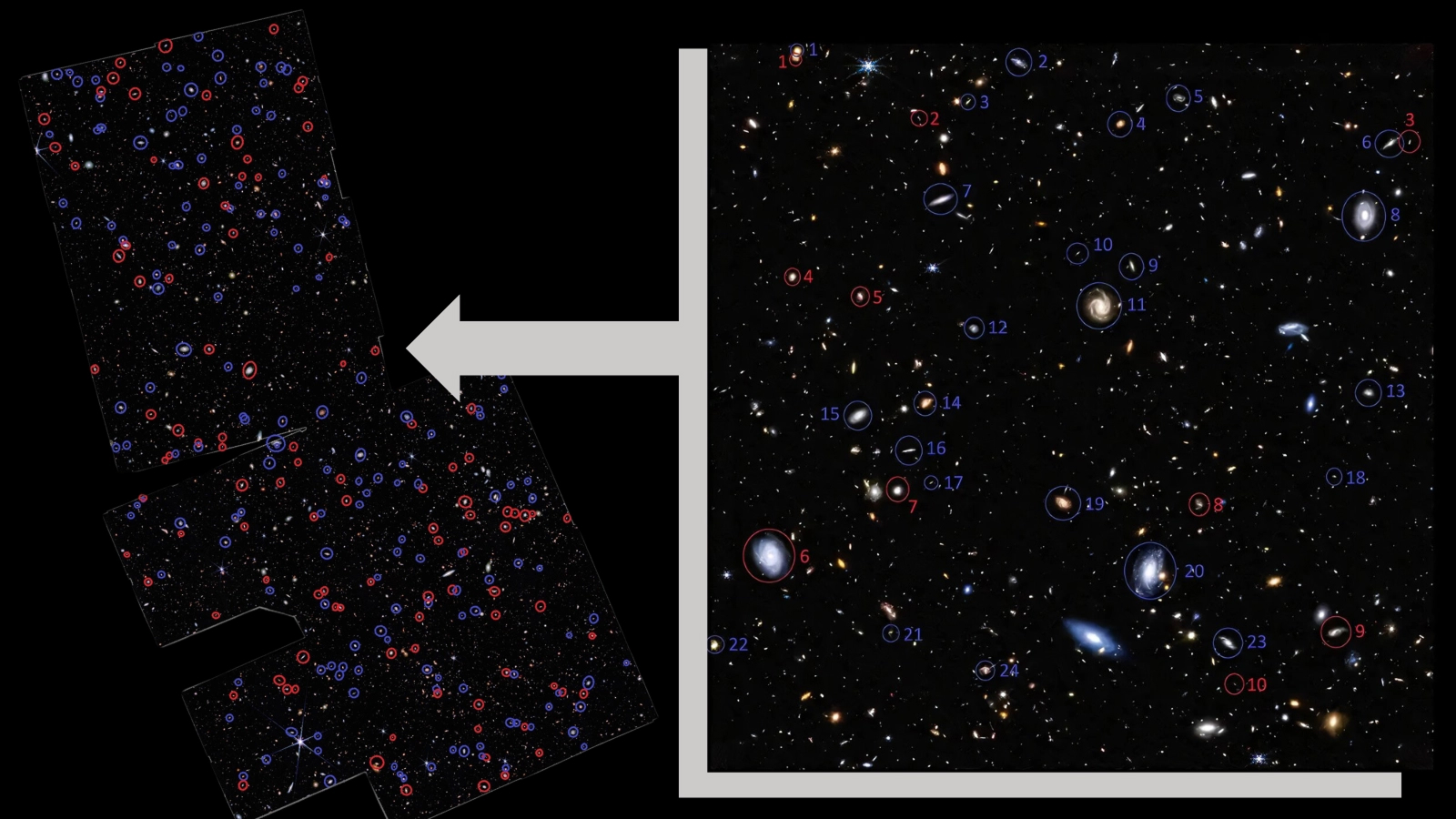
Is our universe trapped inside a black hole? This James Webb Space Telescope discovery might blow your mind
By Robert Lea published
"I think that the simplest explanation of the rotating universe is the universe was born in a rotating black hole."
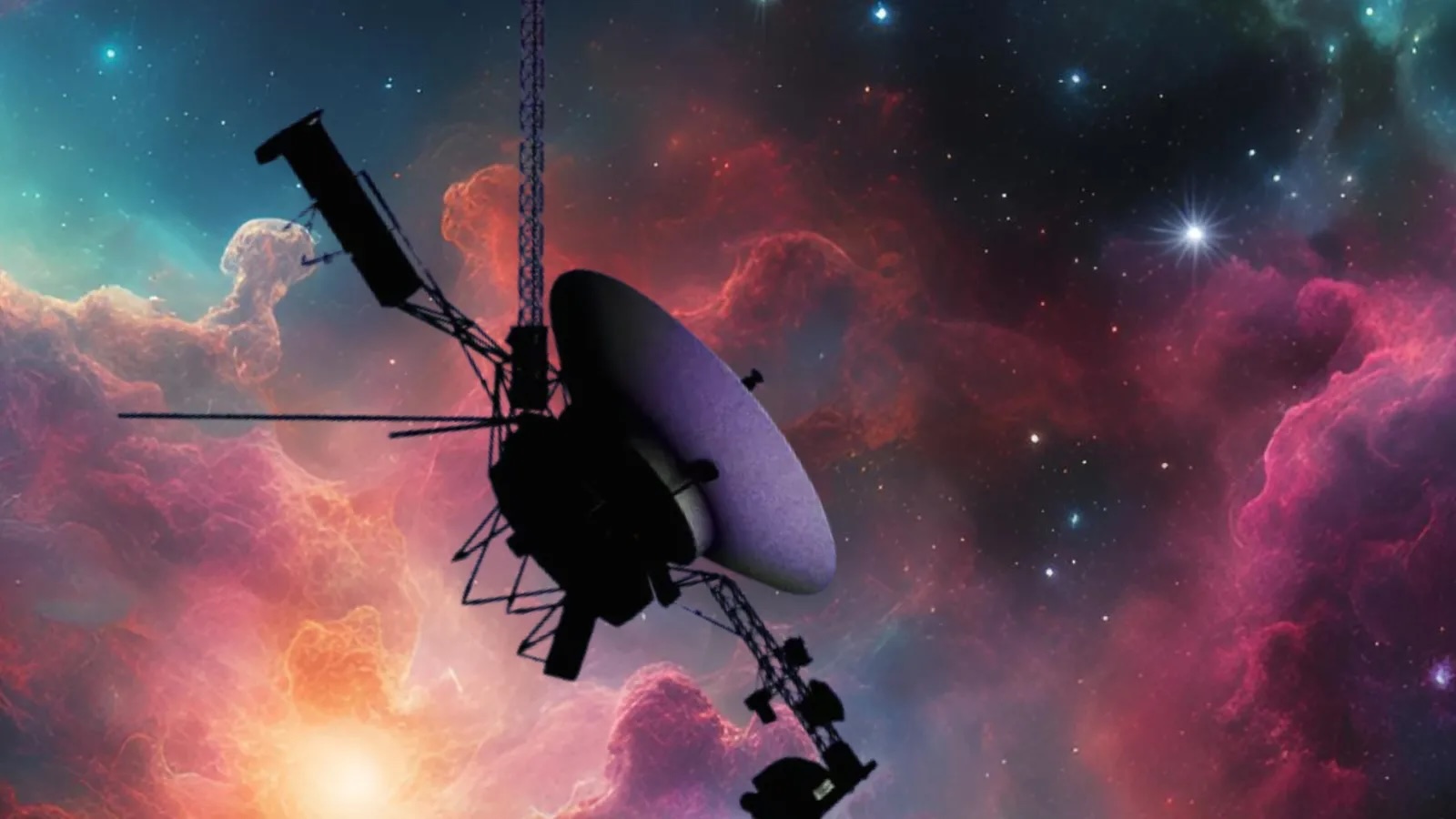
NASA switches off Voyager instruments to extend life of the two interstellar spacecraft: 'Every day could be our last.'
By Robert Lea published
"The Voyagers have been deep space rock stars since launch, and we want to keep it that way as long as possible!"
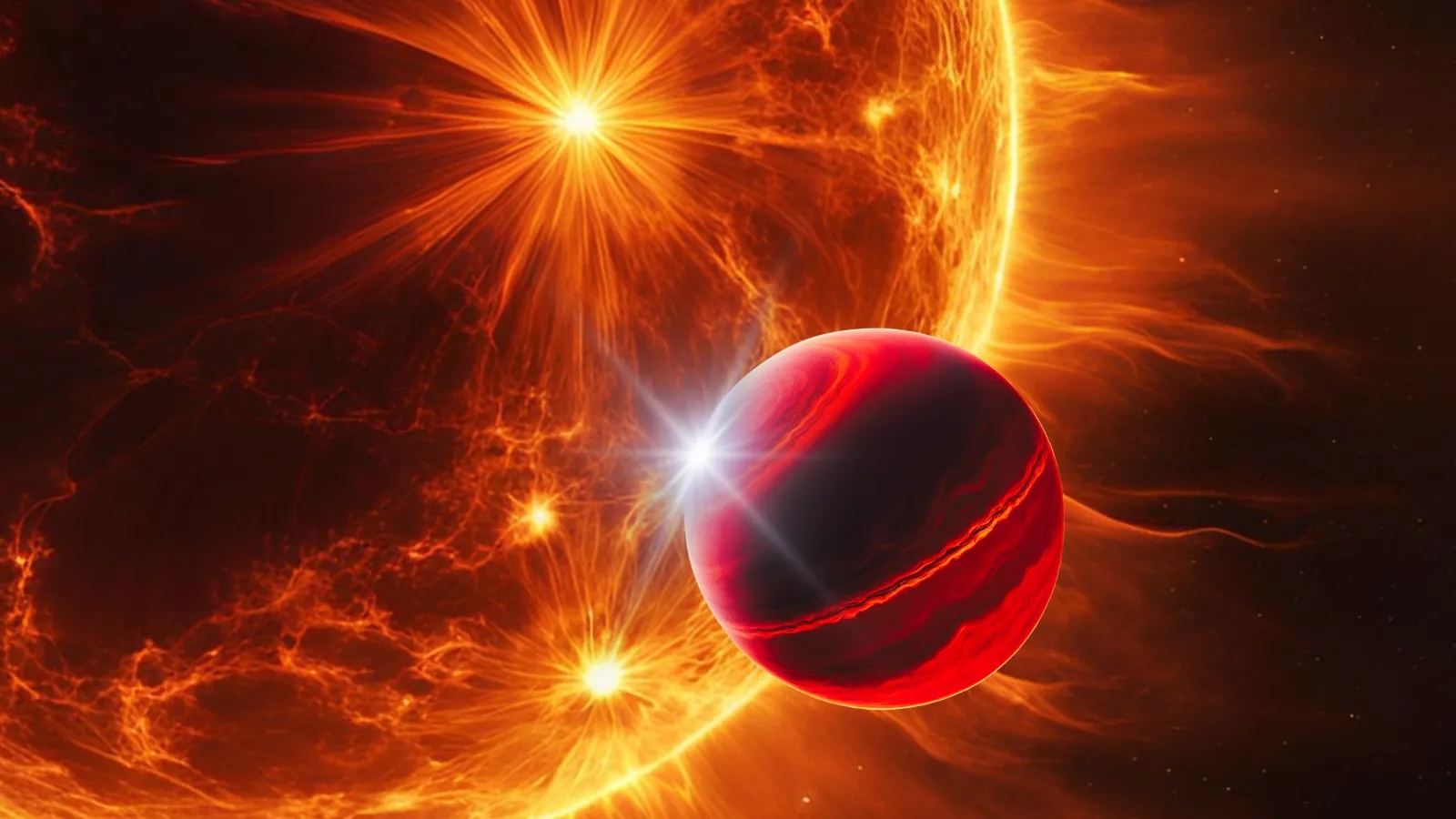
Exoplanet with iron rain has violent winds 'like something out of science fiction'
By Robert Lea published
"Even the strongest hurricanes in the solar system seem calm in comparison."
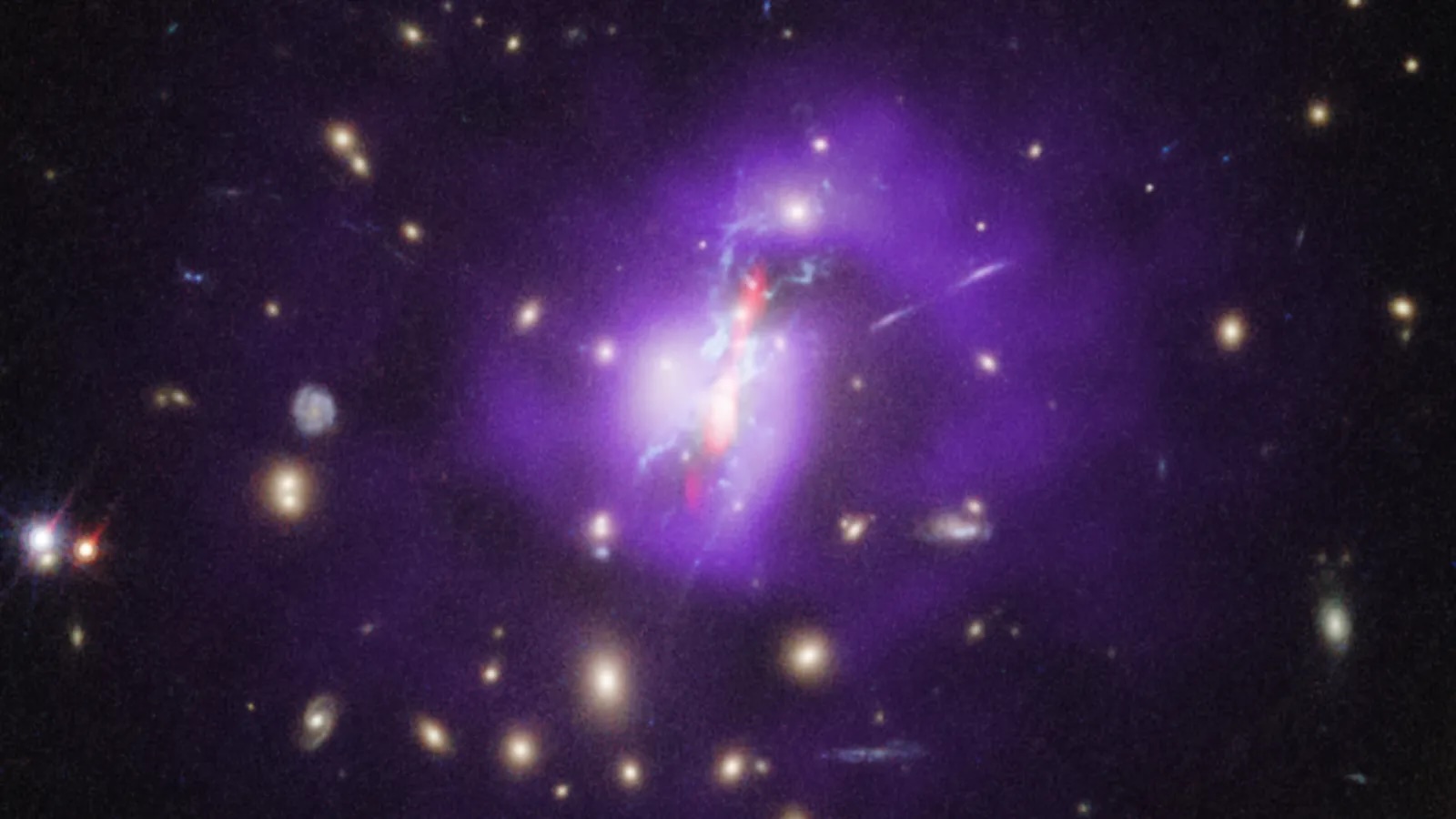
James Webb Space Telescope reveals how a cosmic 'Phoenix' cools off to birth stars
By Robert Lea published
"The Phoenix cluster has the largest reservoir of hot, cooling gas of any galaxy cluster."
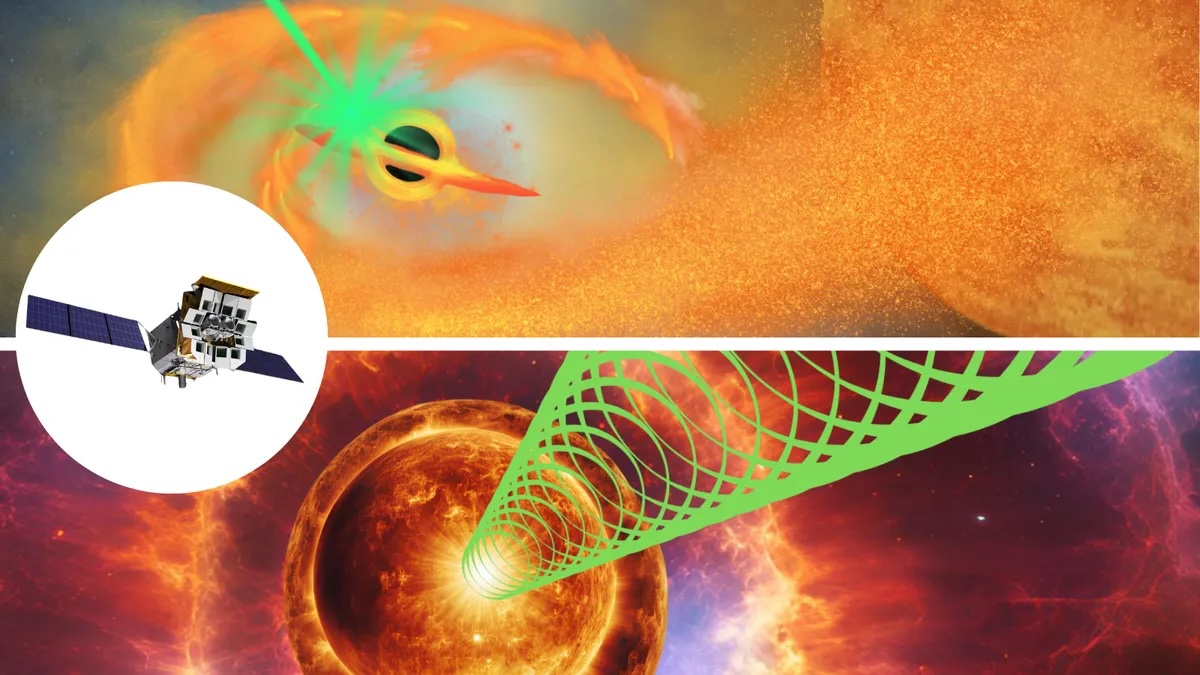
Astronomers unsure what caused 'weird explosion' seen by Einstein Probe's X-ray eye
By Robert Lea published
Was a powerful cosmic explosion seen by the Einstein Probe launched by a supermassive black hole snacking on a star, by a gamma-ray burst, or by something entirely new?
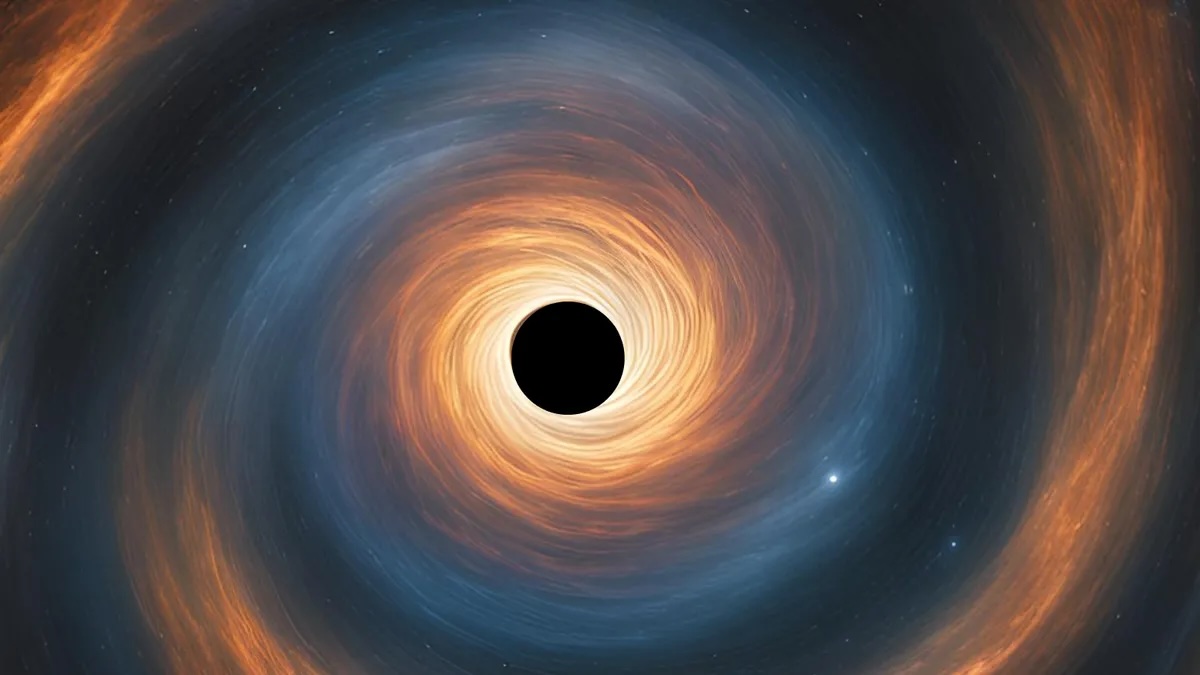
Scientists discover black holes spinning unexpectedly fast: 'You’re essentially looking at its fossil record'
By Robert Lea published
A new form of black hole archeology, linking spin to gas and dust, has revealed that these cosmic titans spin faster than expected.
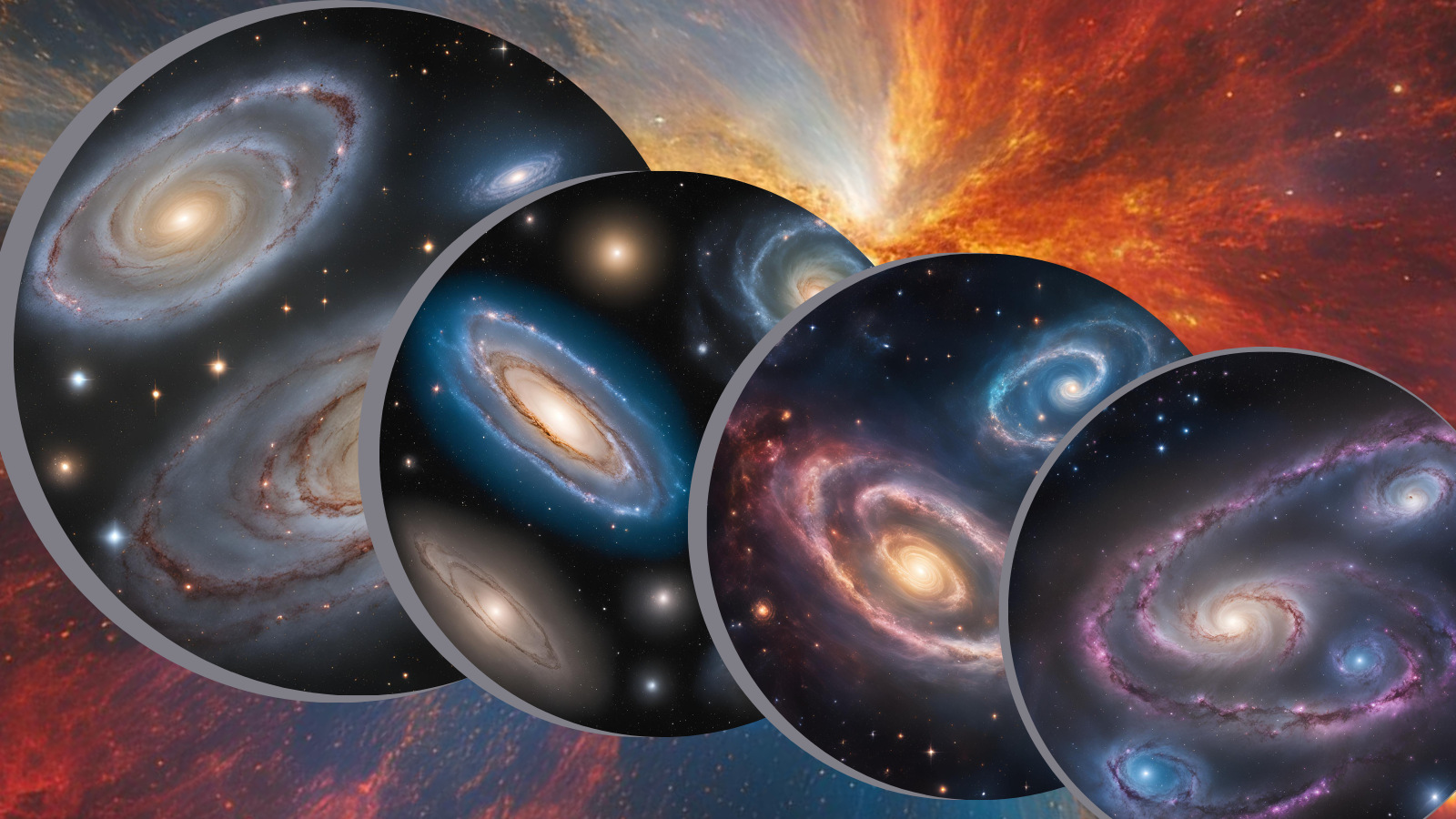
A cosmic 'CT scan' shows the universe is far more complex than expected
By Robert Lea published
"This process is like a cosmic CT scan, where we can look through different slices of cosmic history and track how matter clumped together at different epochs."
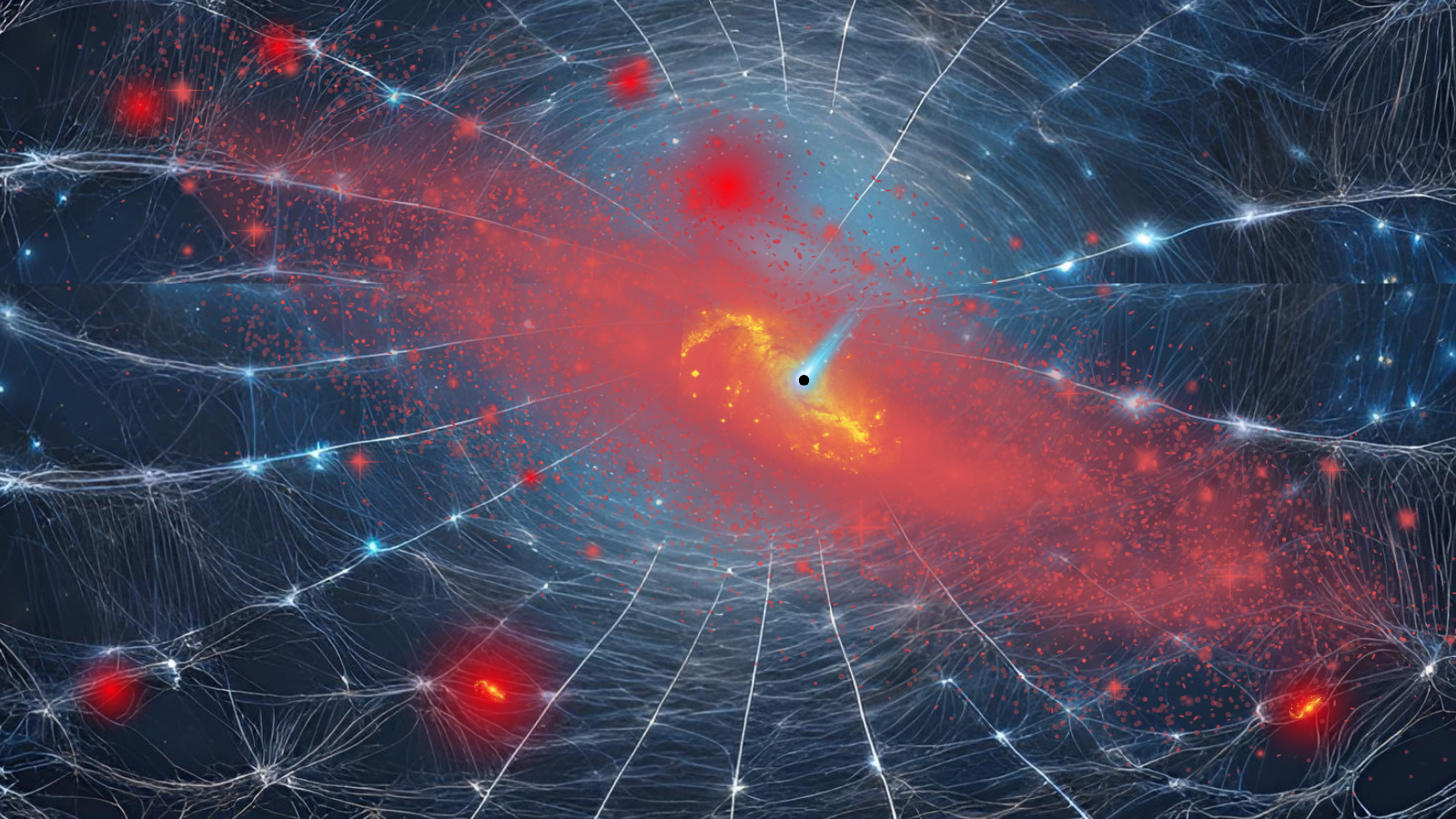
Supermassive black holes in 'little red dot' galaxies are 1,000 times larger than they should be, and astronomers don't know why
By Robert Lea published
"Our measurements imply that the supermassive black hole mass is 10% of the stellar mass in the galaxies we studied."
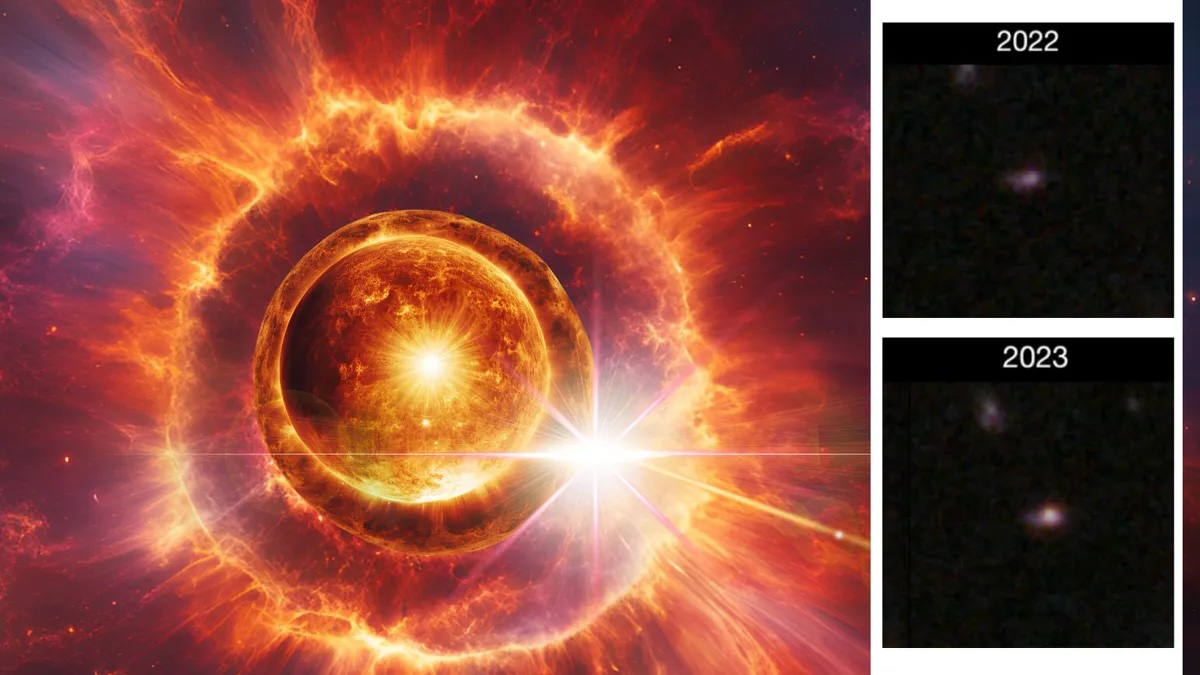
James Webb Space Telescope discovers one of the earliest 'truly gargantuan' supernovas ever seen
By Robert Lea published
The James Webb Space Telescope has spotted one of the earliest and most distant supernovas, marking the death of a stellar monster 20 times the mass of the sun.
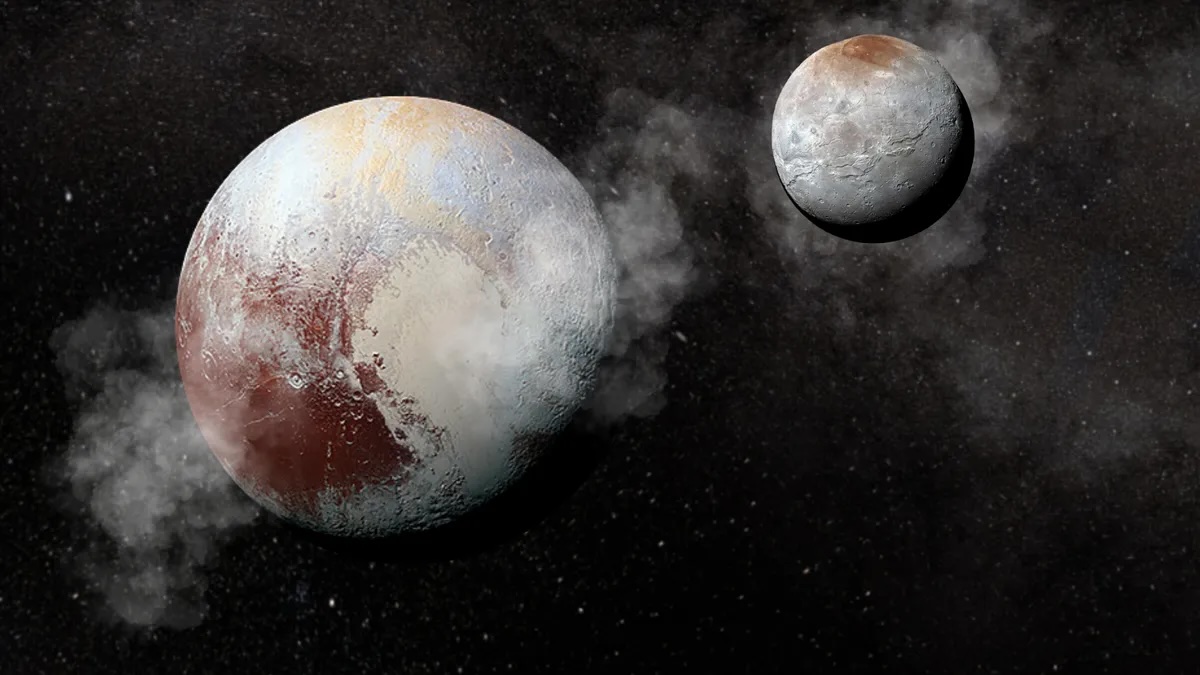
How Pluto captured its largest moon Charon with a 10-hour icy 'kiss'
By Robert Lea published
Pluto may have got romantic to capture its largest moon, colliding and engaging in a passionate but icy 10 hour kiss with Charon billions of years ago.
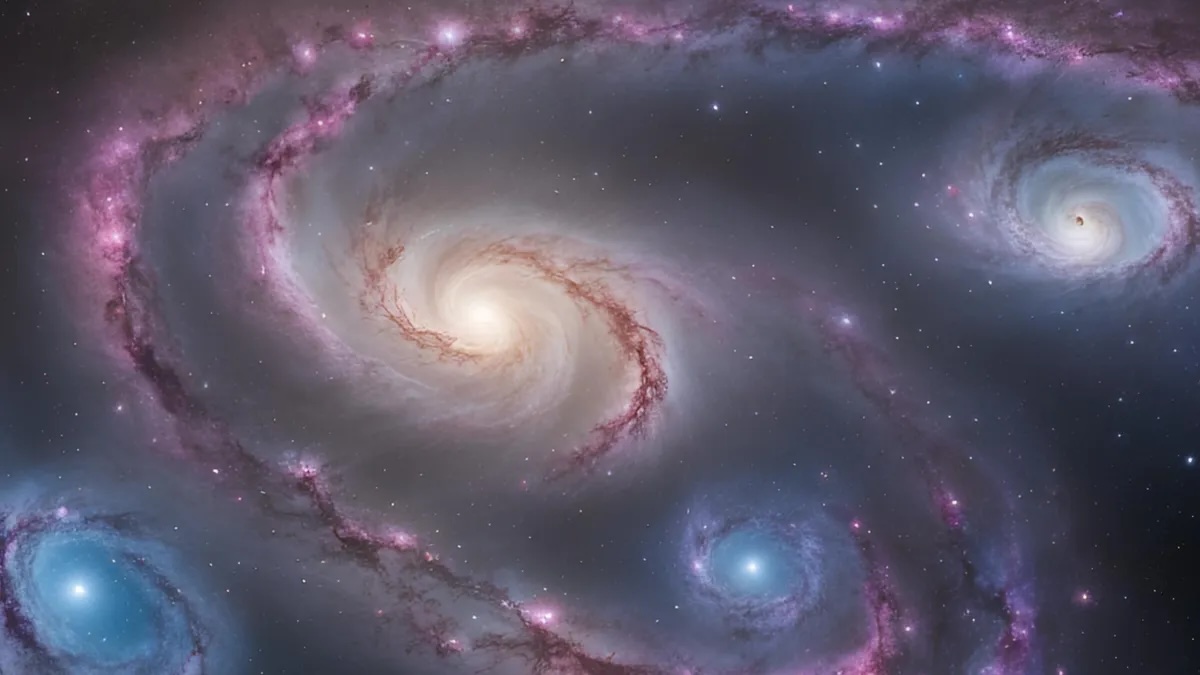
Rare string of 'cosmic pearls' dance together in the universe
By Robert Lea published
A rare group of aligned, star-birthing dwarf galaxies resemble a cosmic string of pearls.
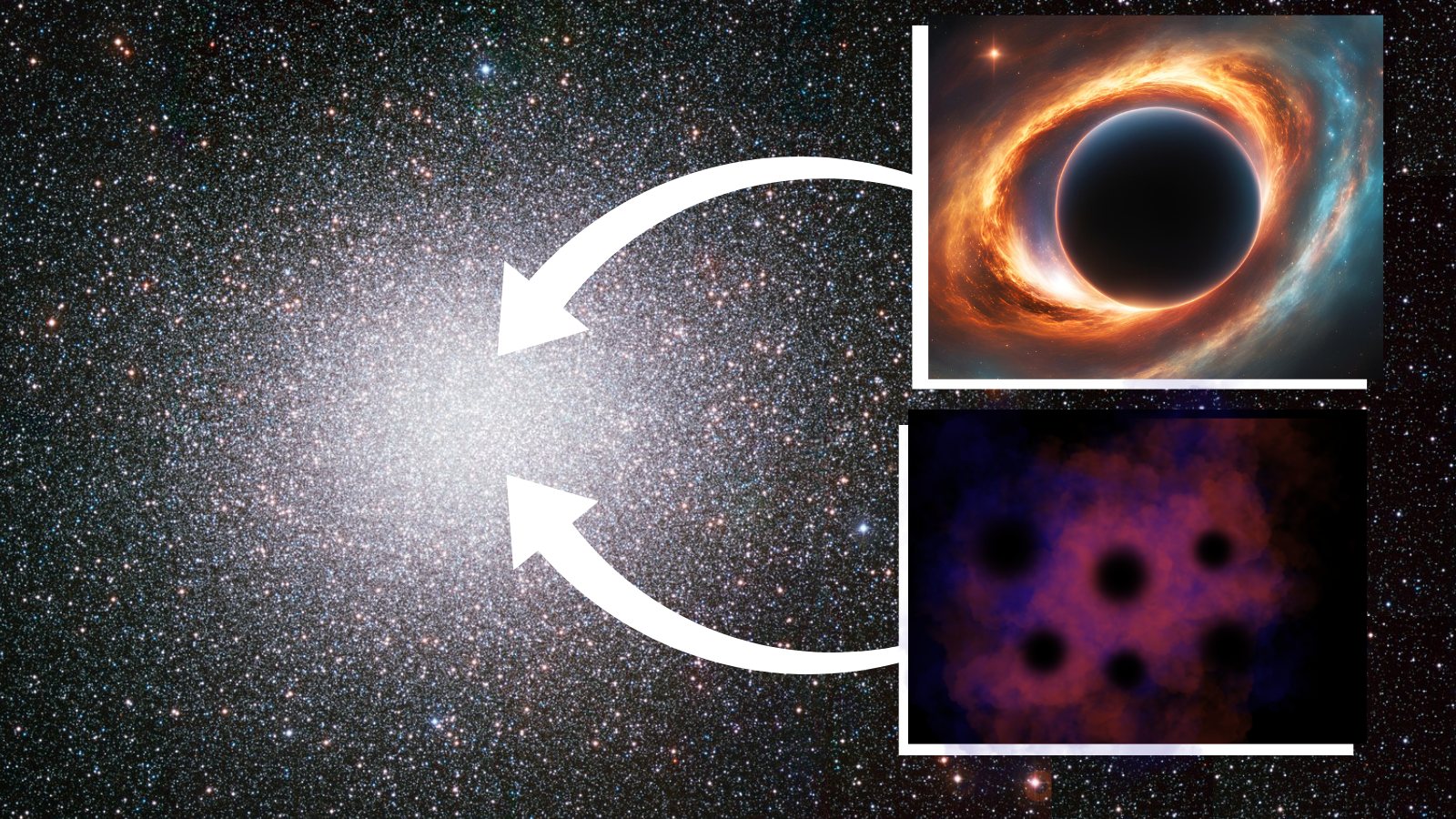
'Missing link' black hole found? Not so fast, new study says
By Robert Lea published
A "missing link" black hole in Omega Centauri is still missing. What appeared to be an intermediate-mass black hole was a cluster of stellar-mass black holes.
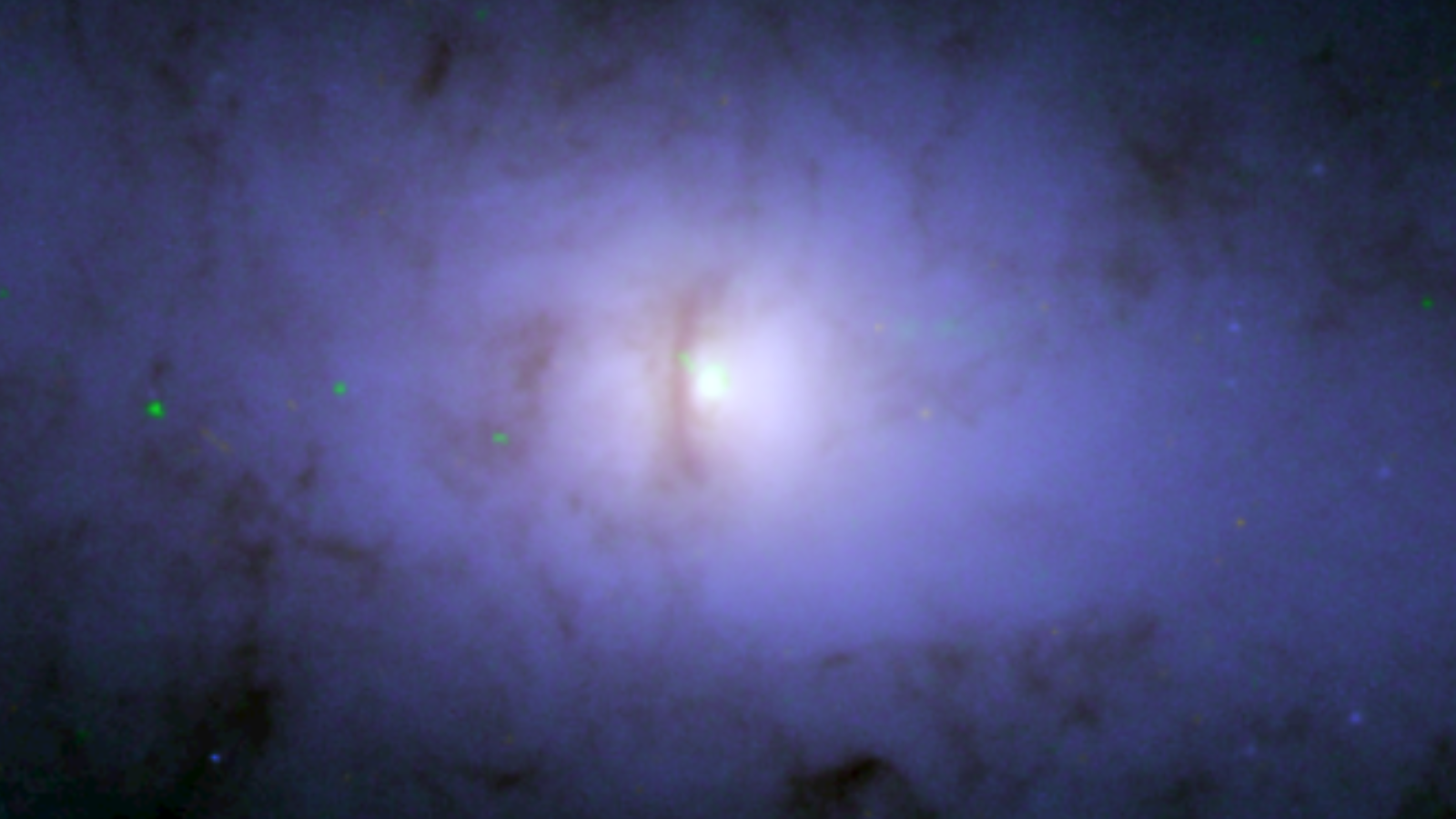
NASA's Hubble and Chandra telescopes discover a strange 'sideways' black hole in a cosmic crime scene
By Robert Lea published
What knocked this black hole over onto its side? It's a cosmic "whodunnit" that NASA scientists using the Hubble and Chandra space telescopes are trying to solve.
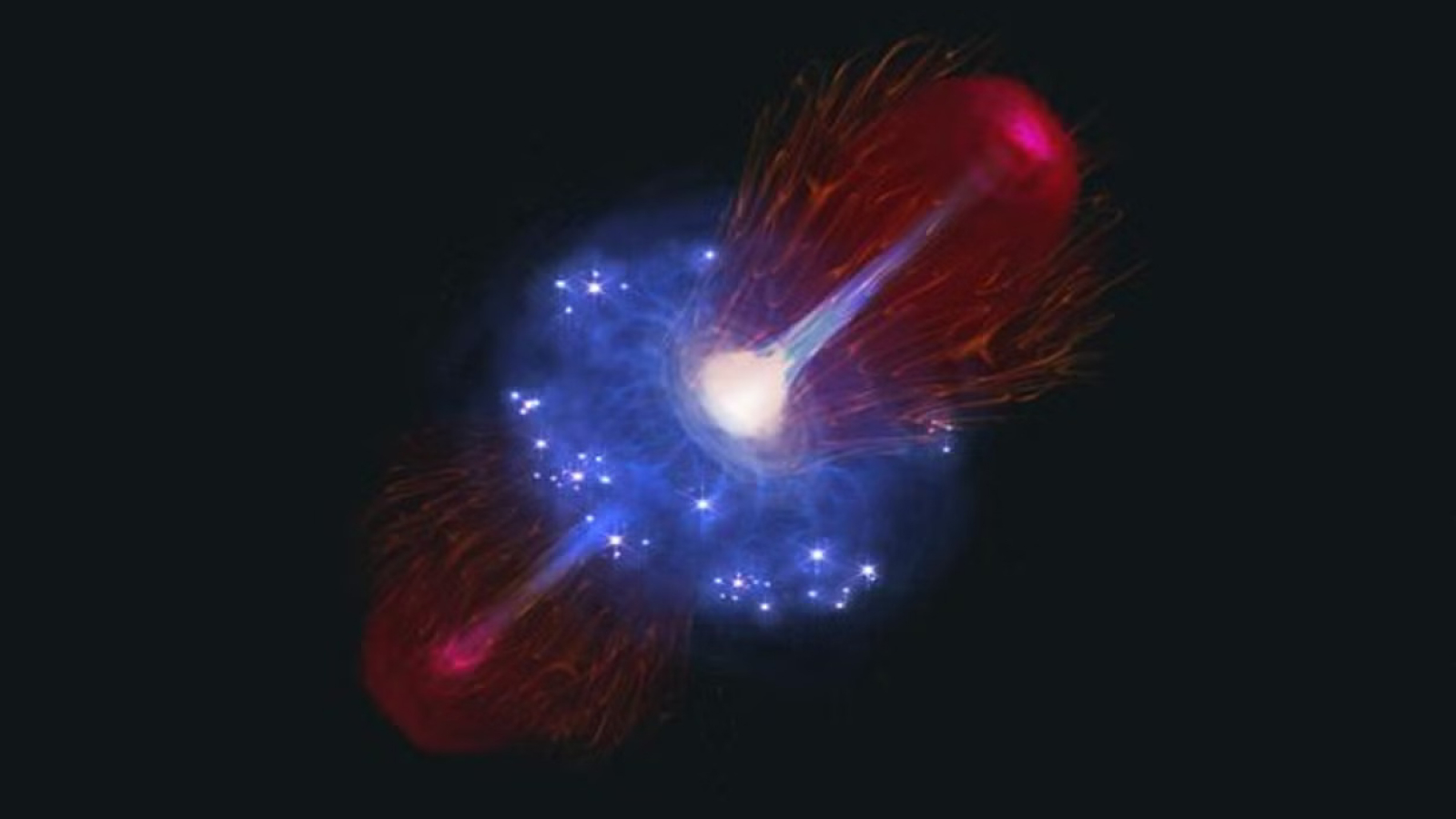
James Webb Space Telescope catches monster black hole napping after 'overeating' in the early universe
By Robert Lea published
The James Webb Space Telescope has caught a napping monster black hole in the early universe. The cosmic giant is slumbering after a massive meal like a reveler on Christmas Day.
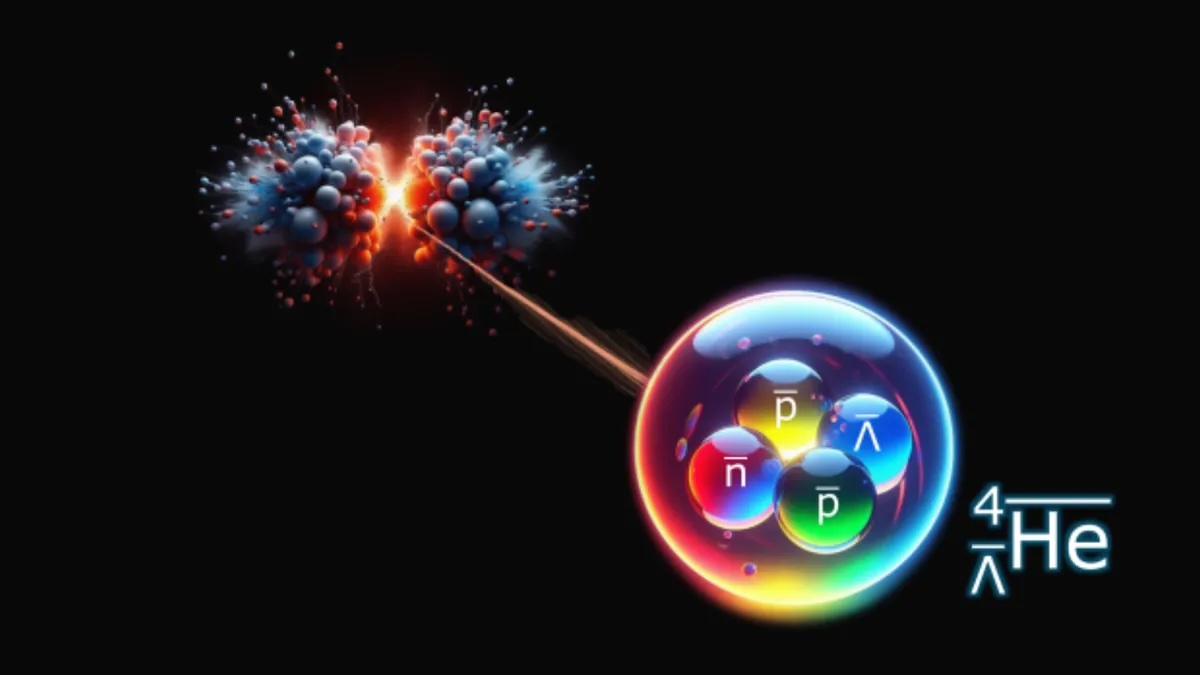
Large Hadron Collider finds 1st evidence of the heaviest antimatter particle yet
By Robert Lea published
Scientists at CERN's ALICE detector are replicating conditions found during the Big Bang, attempting to get to the bottom of how matter came to dominate over antimatter.
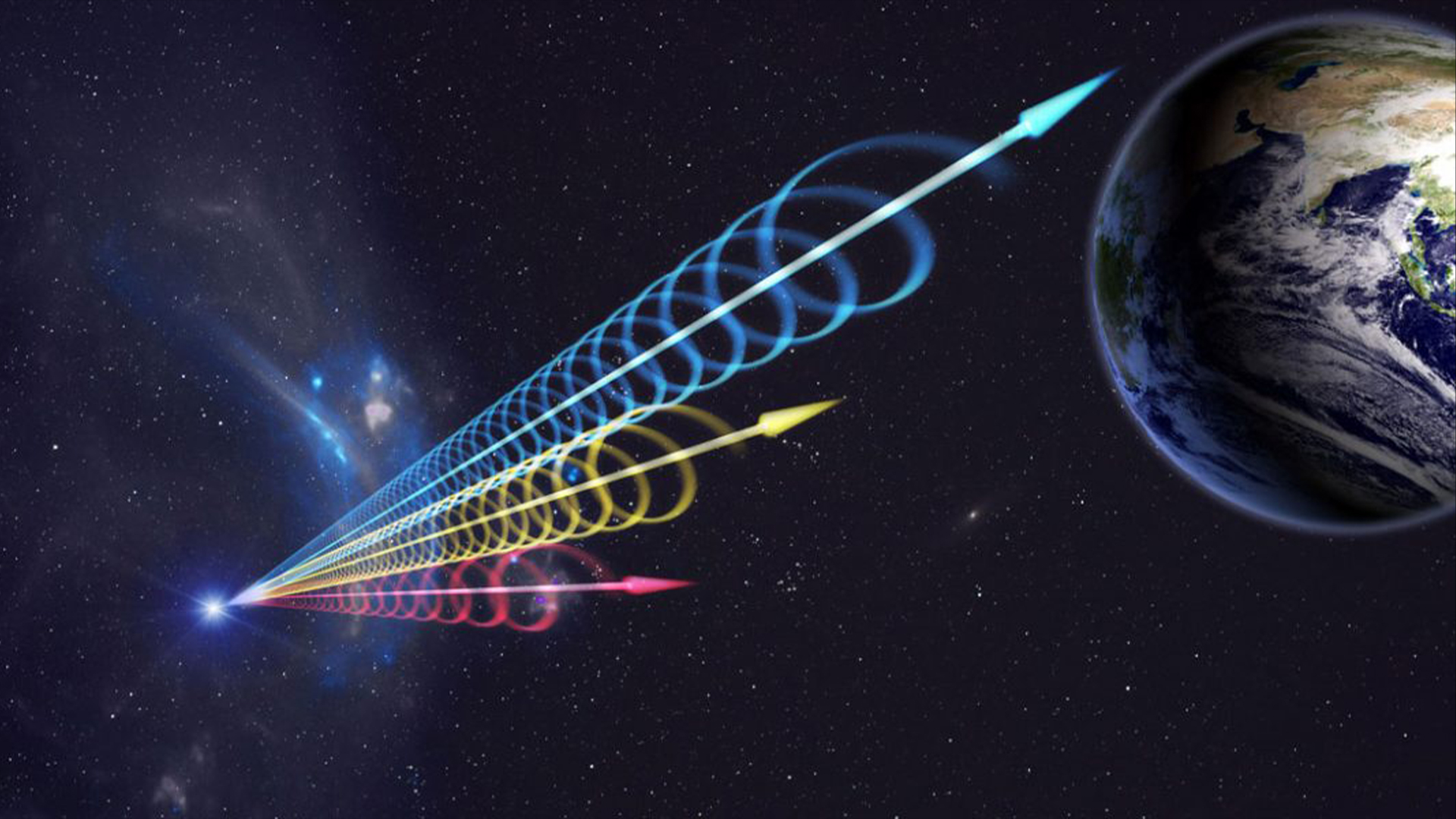
Mysterious fast radio bursts could be caused by asteroids slamming into dead stars
By Robert Lea published
An asteroid hitting a neutron star could release enough energy to power humanity for 100 million years, more than enough to explain fast radio bursts.
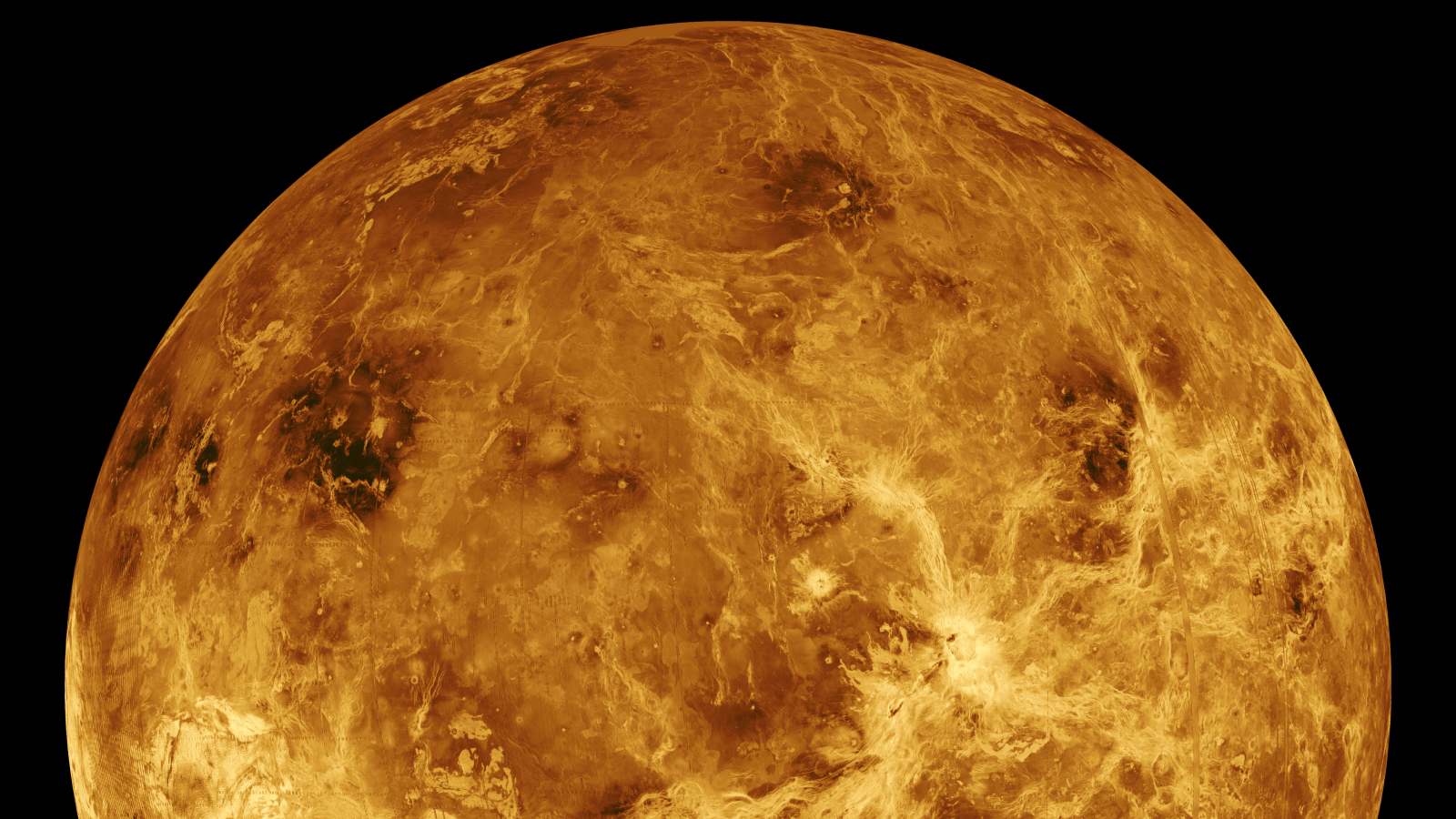
Did Venus ever have oceans to support life, or was it 'born hot'?
By Robert Lea published
"We would have loved to find that Venus was once a planet much closer to our own, so it’s kind of sad in a way to find out that it wasn't."
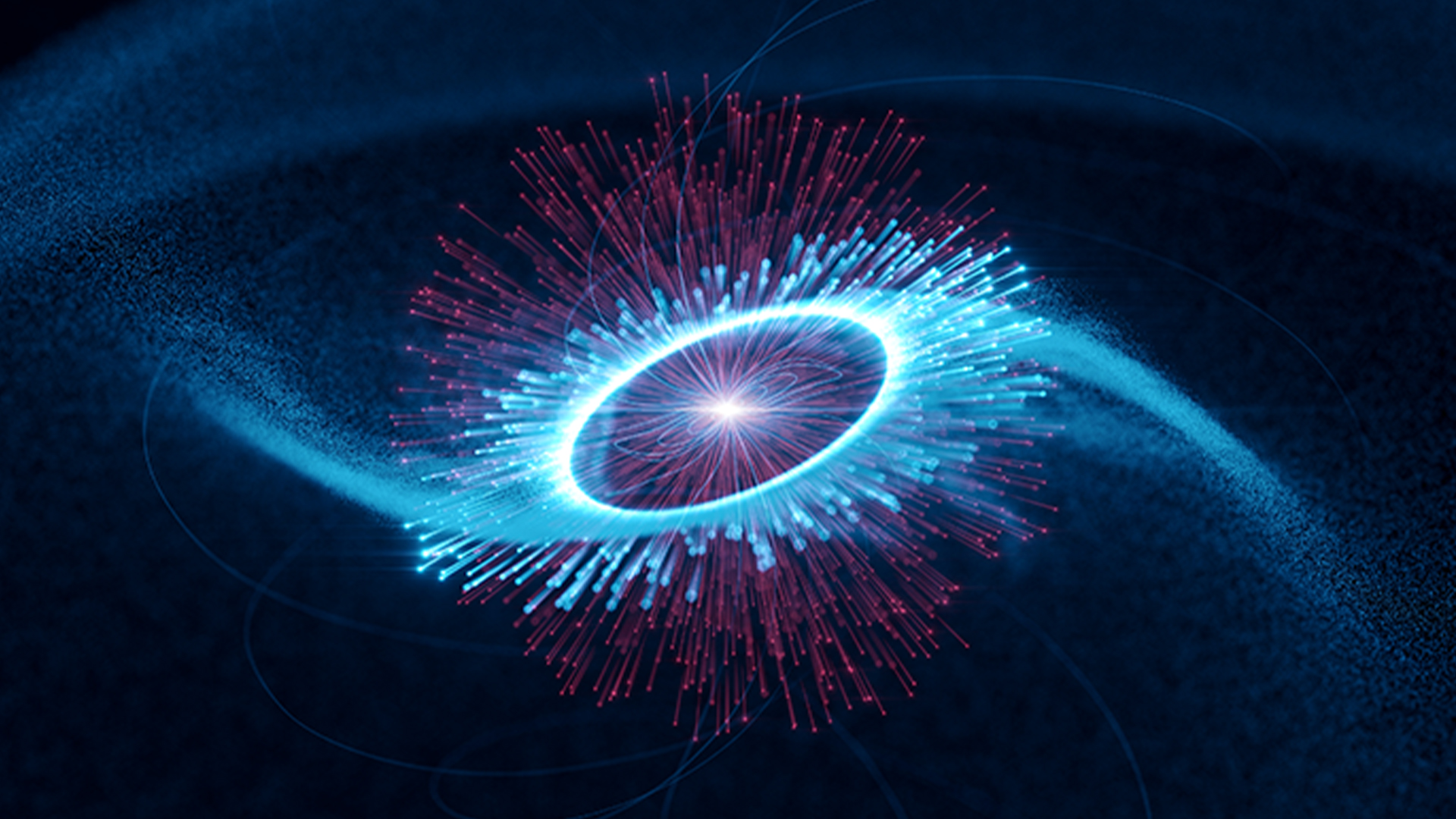
Destroyed observatory helped SETI unlock the secrets of 'cosmic lighthouses' powered by dead stars
By Robert Lea published
"Even years after the Arecibo Observatory's collapse, its data continues to unlock critical information that can advance our understanding of the galaxy."
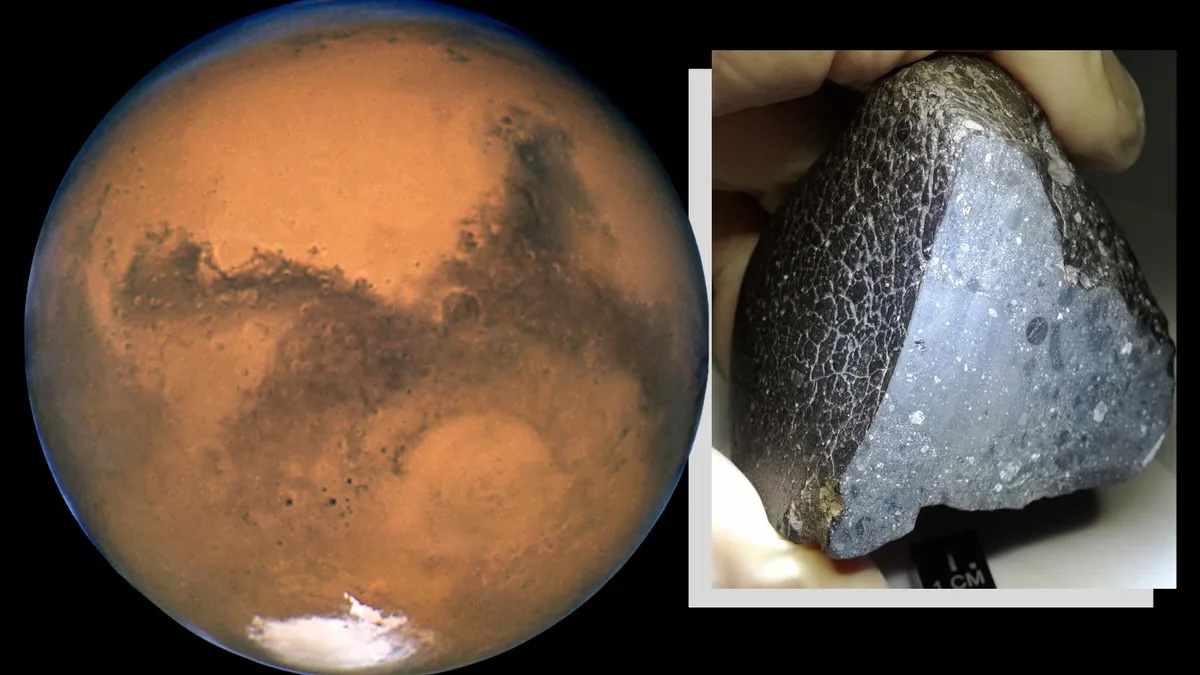
Did alien life exist in hot water on Mars billions of years ago?
By Robert Lea published
Was alien life in "hot water" on Mars billions of years ago? New evidence from the Martian meteorite "Black Beauty" suggests so.
Sign up for the Live Science daily newsletter now
Get the world’s most fascinating discoveries delivered straight to your inbox.
